7 Simple Ways to Better Care for An Elderly Dog

When it comes to elderly dogs, much of their care depends on the individual dog's needs. However, there are some basics that all aging dogs will appreciate. Here are 7 simple ways to better care for an elderly dog. Keep in mind that these tips are just a starting point; always consult with your veterinarian about specific questions or concerns about caring for your elderly dog.
Be Proactive
As your dog moves into their senior years, it becomes even more important to be proactive with their care. While it's always better to stay on top of your dog's maintenance and hygiene before a problem shows up, it becomes even more important as they move into their golden years. But what does being proactive with your care look like exactly?
First and foremost, it means increasing their daily and weekly upkeep. Things like brushing their coat, brushing their teeth, cleaning their ears, and having a good bathing schedule.
Brushing their teeth and cost is especially important to do as often as possible; every day is the most ideal. Most people don't know that many dogs develop some form of periodontal disease before age 2, primarily because of a lack of brushing.
Cleaning their ears can be done more on a weekly basis. And bathing can, unfortunately, do more harm than good when it's done too often, so every 6-10 weeks is a good schedule for that. Also, it's best to make vet visits a bi-annual occurrence as your dog ages. You'll want to have a general check-up at least twice a year to find things before they have a chance to develop into anything serious.
Something else you can do in between vet visits is getting them a "smart" dog collar. These help you get a better reading of your dog's health situation and give you helpful information to bring to your vet if you notice anything unusual.
Overall, the more you can be proactive and stay on top of your elderly dog's condition, the better chance they'll have at living a happy, healthy senior life.
Weight Control
Another way to care for an elderly dog is to keep an eye on their weight. Just like in humans, excess weight can put extra strain on your dog's joints and muscles, making it even harder for them to get around.
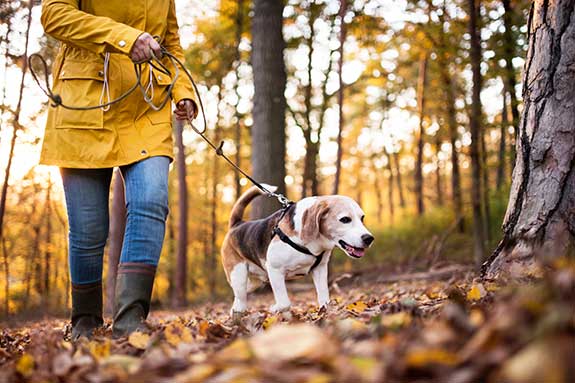
So how do you know if your dog is at a healthy weight? You can use this resource from the Association for Pet Obesity Prevention to get an idea.
Once you know where your dog falls on the weight side, you can work with your veterinarian to create a plan to get them to (and maintain) a healthy weight. This may mean changing their diet and/or increasing the amount of exercise they get.
Help Them Stay Comfortable
As dogs age, they often suffer from joint pain and arthritis. This can make it difficult and painful for them to move around. But, there are a few things you can do to help make them more comfortable.
Firstly, you can make exercise more of a priority to help keep their joints healthy and strong. This doesn't mean you have to take them on extra long walks (although they're great to work up to). Just making sure they're getting some physical activity every day is beneficial.
Second, you can get them a comfortable, accommodating bed. Many dog beds are made with orthopedic memory foam to help alleviate pressure on an aging dog's aching bones and joints. Also, there are beds designed to help regulate a dog's temperature better.
This means if you live in an area that gets too warm, you can get them a bed that helps them stay cool while also being comfortable. On the other hand, if you live in an area with cold temperatures, there are beds that are designed to help your dog retain their body heat, like Aspen Pet Self-Warming Pet Beds.
Another thing you might consider is CBD oil or CBD Dog Chews. CBD can help relax your dog as well as give them pain relief.
Finally, you can also talk to your veterinarian about pain medications that may help. There are various options available, and your vet can help you find the best one for your dog.
Continued Socialization
Just because your dog is getting up there in age doesn't mean they don't still need socialization. In fact, it's important to continue socializing your elderly dog as it can help them stave off dementia and other age-related mental declines.
The best way to socialize an elderly dog is to take them to quieter, more low-key outings where they can interact with other people and animals. This could be a trip to the park, a dog beach visit, or even a short walk around the neighborhood. You can also socialize your elderly dog by inviting friends over to your house, taking them to doggy daycare, or even enrolling them in dog therapy.
The bottom line is that socialization is important for all dogs, regardless of age. So, if you elderly dog isn't getting out as much as they used to, make an effort to include them in social activities as often as possible.
Supplements
When dogs start moving into their senior years, they may need additional nutrients they might not be getting from their food. This is where supplements come in.
There are a variety of supplements that can be beneficial for elderly dogs. These include joint supplements, omega-three supplements like fish oils, probiotics, and more.
You can talk to your veterinarian about which supplements they recommend for your dog. They will be able to advise you on the best type and dosage based on their individual needs.
Simple Environment Adjustments
There are a few changes you can make to your home to help your senior dog better navigate their environment and stay safe.
One of the best things you can do is consider adding more carpet to your home. This will help provide traction for your dog and help them move around with more confidence without the risk of slipping and injuring themselves.
You can also ensure your home is well-lit so your dog can see where they are going. This is especially important at night when it's darker.
Another thing you can do is create a designated potty area for your dog. Incontinence is common in aging dogs, and somethings they may not be able to hold it as long as they need to. This makes having an area they know is okay for emergencies considerably helpful.
You may also want to rearrange your furniture, so they have a clear path to walk around without having to navigate around obstacles. Also, if you have a taller dog, another minor adjustment you could make is getting them an elevated food/water bowl to help put less strain on their neck while eating and drinking.
Finally, you can get your dog a ramp or stairs to help them get on and off furniture. This is especially important if your dog likes to sleep on the couch or your bed. They're also helpful for making getting in and out of a car much easier.
The more accommodating you can make your home for your senior dog, the better.
Even More Love & Affection
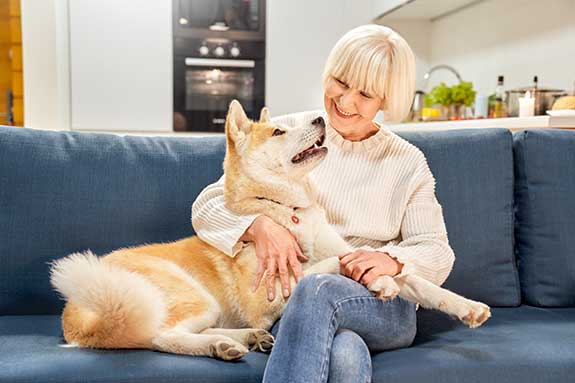
One of the best things you can do for your elderly dog is give them lots of love and affection. They will likely start to slow down and may not be able to do the things they used to enjoy. So, it's important to make sure they know they're still loved and appreciated.
This means taking the time to cuddle with them, give them belly rubs, brush their fur, and just spend quality time with them. It's also important to talk to your dog in a soft, calming voice and to be patient with them when they're having a bad day.
Elderly dogs may also benefit from massage therapy. This can help them relax and feel good while providing several health benefits. If you're unsure how to massage your dog, you can ask your veterinarian or a professional dog masseuse for advice.
Final Thoughts
Caring for an elderly dog can be challenging at times, but it's also incredibly rewarding. By following the tips above, you can help make your dog's golden years as comfortable and enjoyable as possible.
This article was written by Alec Littlejohn. Alec grew up in a family of vets where pet care was discussed on a daily basis. He's also a member of the Association of Professional Dog Trainers, a recognized author by the Dog Writers Association of America, and now the lead editor at Pawscessories.
Previous article
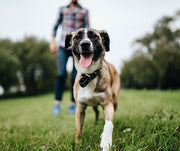
Next article
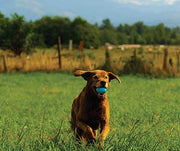
Related posts
View all-
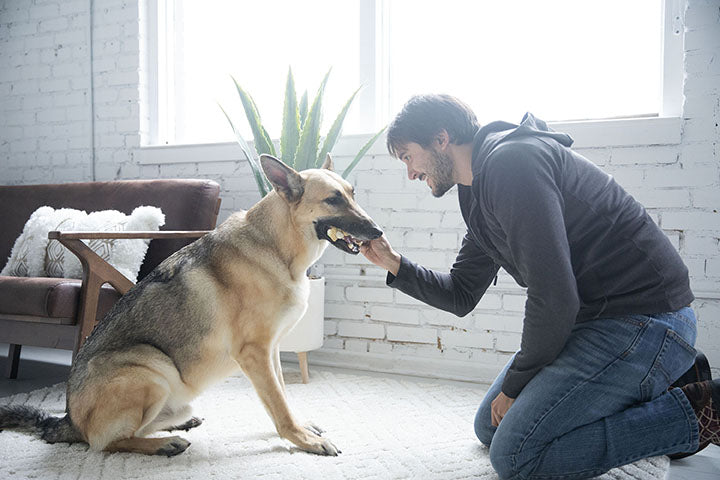
National Dog Week: 7 Fun Ways to Celebrate with Your Pup
The last full week of September marks National Dog Week: a tradition going strong since 1928. Founded by Captain William Lewis Judy, this celebration was created to promote responsible dog ownership, reduce the number of stray dogs, and honor the incredible role dogs play in our lives.
Read Article -
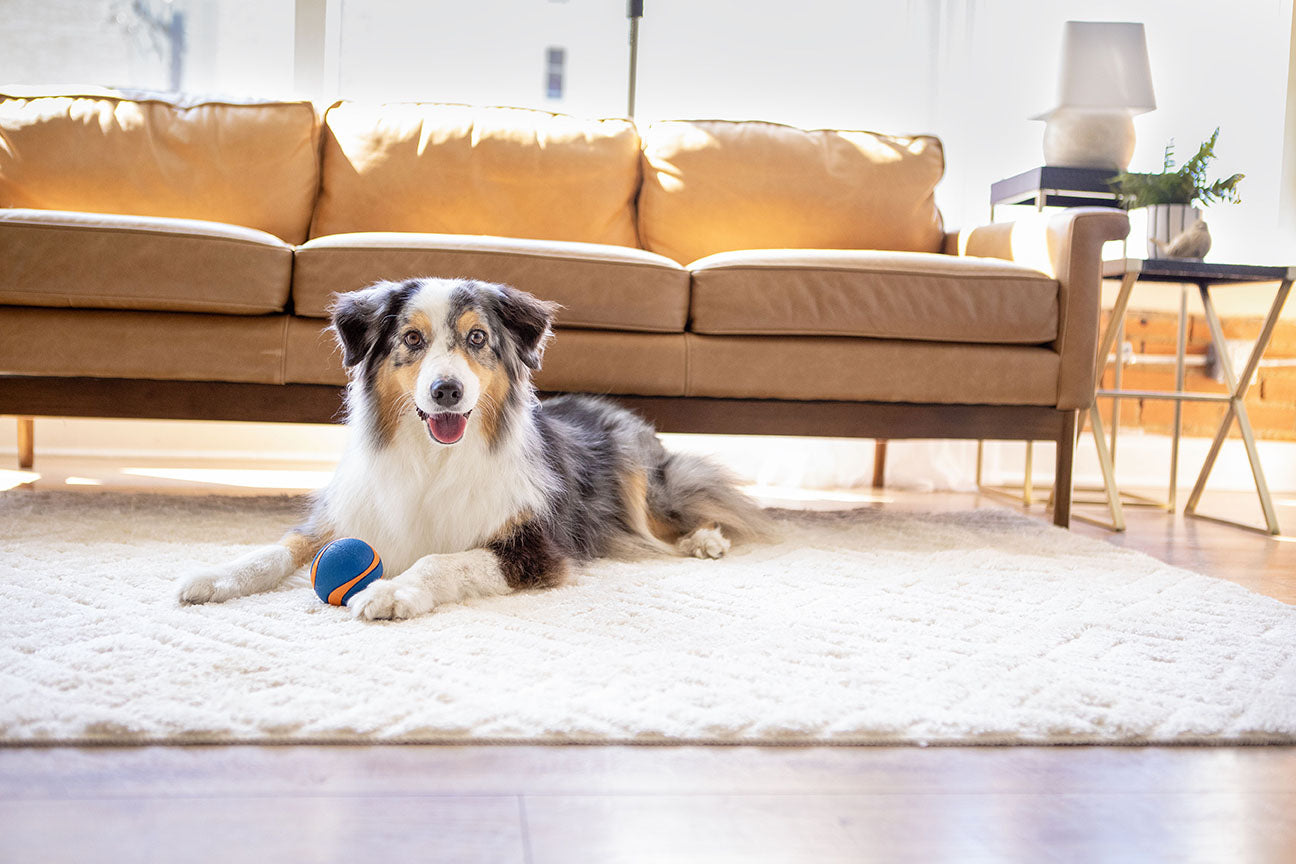
How to Prep Your Pet for Fall: Grooming and Wellness Tips
As the days grow shorter and the crisp air settles in, our routines naturally shift; long walks become brisk outings, and cozy nights become the norm. Like us, pets feel these changes. Helping them ease into the new season ensures they stay happy, comfortable, and healthy.
Read Article -

Vet-Approved Benefits of Fetch: How Play Supports Your Dog’s Health & Happiness
Whether it’s a spontaneous backyard sprint or a structured game of fetch, movement is one of the most powerful ways to nurture the bond between pets and their people.
Read Article



